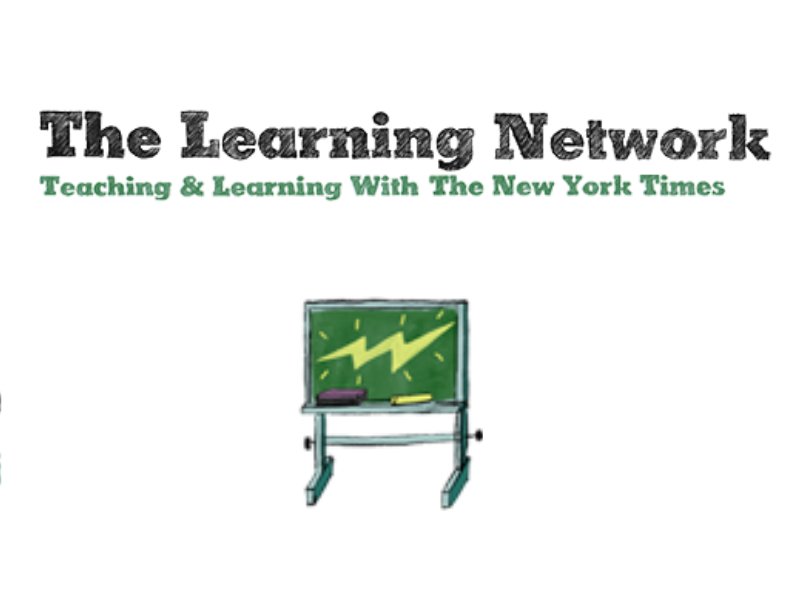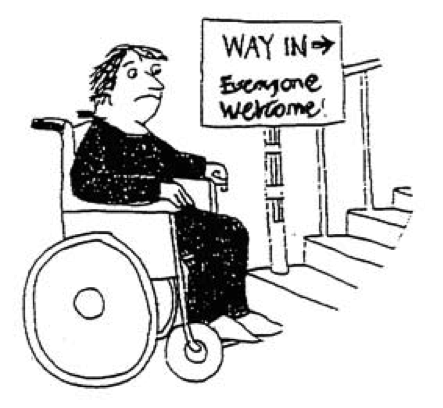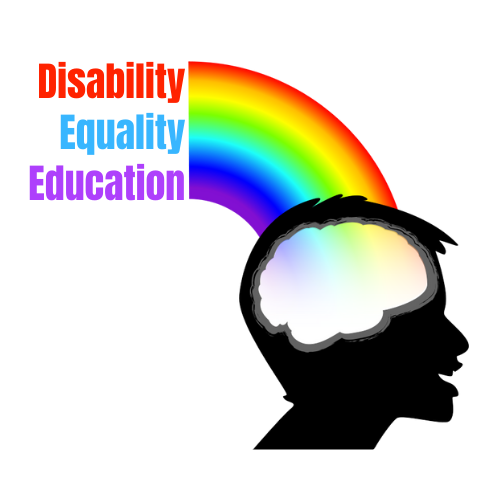
The New York Times - ‘26.2 Miles Is Easy. Getting Around New York City Is Not.’ - Lesson Plan
In this lesson, students will learn why it’s easier for one athlete to win a marathon in New York than to navigate the city in a wheelchair. Then, students will evaluate the accessibility of public spaces where they live.
Image Description: "The Learning Network Teaching & Learning with the New York Times" Below the text is an illustration of a green chalkboard with a lightning bolt.

The New York Times - ‘The Hidden Image Descriptions Making the Internet Accessible’
In this lesson, students will learn about alt text, and image descriptions that help people who have low vision or are blind to use the internet. Then, they will practice using the feature.
Image Description: "The Learning Network Teaching & Learning with the New York Times" Below the text is an illustration of a green chalkboard with a lightning bolt.

Patient No More: People with Disabilities Securing Civil Rights
Teaching the story of the 504 occupation, the focus of the Patient No More exhibit, will undoubtedly leave students with a new perspective toward living with a disability. “Patient No More” offers a story about the creativity and strength that comes out of the disability community, an incredible example of how change can happen from the bottom up. It's also a story about how disability rights have changed the lives of all Americans in ways they might not realize.
Image Description: “Patient No More - People with disabilities securing civil rights” black and white photo of protestors with capitol building in the background, many in wheelchairs, one with a sign on the back of their wheelchair that says “We Shall Overcome”

Posters with Disability Inclusive Content
Posters with disability representation. Most are free to download, though some can be purchased as well.
Image description: Corkboard wall with many signs of assorted size and colors.

Racialization of Disability Lesson
In this lesson, students will read and discuss Douglas Baynton’s Disability and the Justification of Inequality in American History. Students will participate in a discussion about the racialization of disability and the intersections of ableism and racism.
Image description: Photograph of James Baldwin and the quote “We can disagree & still love each other unless your disagreement is rooted in my oppression & denail of my humanity & right to exist” - James Baldwin

Scientific Racism and Scientific Bias Lesson
Students will learn about the history of how science has been used to enforce racism. Students will think critically about scientific bias.
Image Description: Sepia tone background. “Scientifc Racism and Scientific Bias” in white letters

The Social Model of Disability
This links to our Social Model of Disability resources page which contains videos and examples of how to introduce and teach the Social Model of Disability.

Stella Young TED Talk Lesson Plan
Students will watch Stella Young’s TED Talk where she breaks down society's habit of turning disabled people into ‘inspiration porn’” and process why disabled people are often thought to be inspirational for achieving very ordinary things. This inspiration is actually pity in disguise and they’ll discuss the implications for that idea. Students will reflect on their own perceptions of disability and how it aligns with the thoughts shared in the TED video
Image description: Photo looking up at Stella Young

Thinking Critically about Disability - Social Media Lesson
When Stephen Hawking passed away, many artists processed the loss through art. Their art depicts disability from multiple perspectives. In this activity students will explore 2 contrasting images. Take note of the details and how the images depict Stephen Hawking and his physical disability. Both of the images are from Twitter and students may have already seen both of the images just scrolling through their phones. Students will explore elements of art, social studies and psychology in this lesson. The focus of the discussion is up to individual educators.
Image description: illustration of Stephen Hawking, seated in his motorized wheelchair, floating above the earth with other planets in the background

We Will Ride Lesson by Pop Culture Classroom
In this lesson students will read a 2-page graphic novel format story about the Gang of 19 and “We Will Ride” action, and how they fought for equal rights for the disabled.
Image Description: Graphic Novel cover showing protesters in purple black and off white on a green background with the title “Colorful History Comics #31 We Will Ride” underneath the comic.
